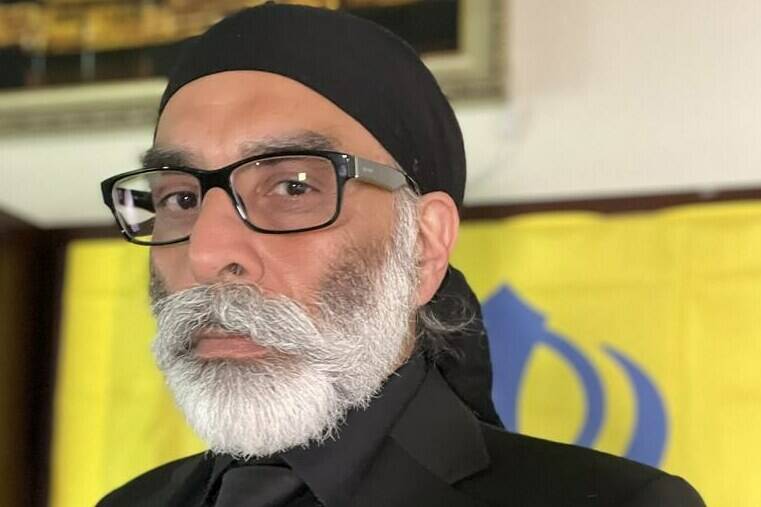A decade ago this month, lawyer Gurpatwant Singh Pannun and his friend Hardeep Singh Nijjar were in Geneva to deliver a petition calling on the United Nations to declare widespread killings of Sikhs in India in 1984 a genocide.
Pannun says the pair had travelled to Sikh temples throughout Canada for years, starting around 2009, to gather support for the effort.
Today, Nijjar is dead, gunned down outside his gurdwara in Surrey, B.C., last June. Prime Minister Justin Trudeau says “credible allegations” have linked Nijjar’s killing to India’s government.
Pannun, meanwhile, is at the heart of an alleged international plot that U.S. prosecutors say targeted him for assassination and was orchestrated by an Indian government employee.
An indictment unsealed in New York on Wednesday says Indian national Nikhil Gupta, 52, was recruited by the Indian official to arrange the killing. The alleged target isn’t named in the document, but has previously been identified by U.S. officials as Pannun.
READ MORE: Plots to assassinate Sikh leaders were part of a campaign of planned killings: U.S. prosecutors
For years, Pannun — who says he’s a dual citizen of Canada and the U.S. — has been a thorn in the side of New Delhi, which regards him as a terrorist for his activities in support of an independent Sikh state known as Khalistan.
In turn, the New York-based lawyer is known for fiery social media posts denouncing India’s government that have drawn attention from authorities in Canada.
In one recent post Pannun told Sikhs not to fly on Air India on a certain day, a message described by the RCMP as a “threat,” although Pannun says it was nothing of the sort.
“RCMP has every right to investigate a terror threat,” Pannun said this month. “And if they consider that calling for boycott of Air India as a civil disobedience … is a terror, then so be it, let them investigate.”
Pannun said in an interview on Wednesday that he moved to the U.S. in 1992 to pursue an undergraduate degree before completing a master’s degree in business administration.
“I worked on Wall Street for financial firms until 2003,” he said. “I went back to school to do my law degree in New York from 1999 and I finished it in 2003.”
He said he applied for Canadian citizenship during law school because it would be “valuable.”
He wanted to be able to practise law in Canada, but Pannun said he had another motivation in the back of his mind.
“If human rights violators are coming, being a Canadian citizen, you have more rights (than) an outsider,” he said.
In 2004, Pannun said he began spending most of his time in Canada, chiefly in Ontario, until 2018, when the Khalistan referendum campaign was gathering steam. But now he resides in New York.
Pannun said India’s government wants him dead because of his work for Sikhs for Justice, pushing the Khalistan referendums on the creation of an independent Sikh state in India’s Punjab region.
He said he does not refute the assertion that he is advocating secession “because Sikhs are facing existential threat under successive Indian regimes.”
An Indian government document from 2020 that designates Pannun a terrorist accuses him of “providing financial help to youths … for creating violence or fear to disturb peace.”
“Pannun has been issuing appeals and propagating through social media regularly to Punjab-based gangsters and youth to fight for the cause of independent state of Khalistan, challenging the sovereignty, integrity and security of the country,” says the Gazette of India, which publishes the government’s public notices .
Pannun said the terrorism charge is an effort by India to stop the referendums, but he isn’t deterred.
“If death is the cost for running the Khalistan referendum, I am willing to pay that price,” he said in a statement Wednesday.
Pannun said that, for him, the U.S. murder-for-hire charges aren’t against Gupta and instead they’re an indictment of Indian Prime Minister Narendra Modi.
He called Modi a “human rights violator” with a “track record of using violence to suppress criticism and dissenting political opinion.”
Rather than concentrating on threats to his life, Pannun said he’s focused on the next referendum vote scheduled to take place in San Francisco, Calif., in January.
“That doesn’t mean that I’m just careless,” he added. “I know exactly how to handle this situation, where (the) Indian government wants to kill me.”
The Canadian Press
READ MORE: India-U.S. ties could face test after a foiled assassination attempt on a Sikh

